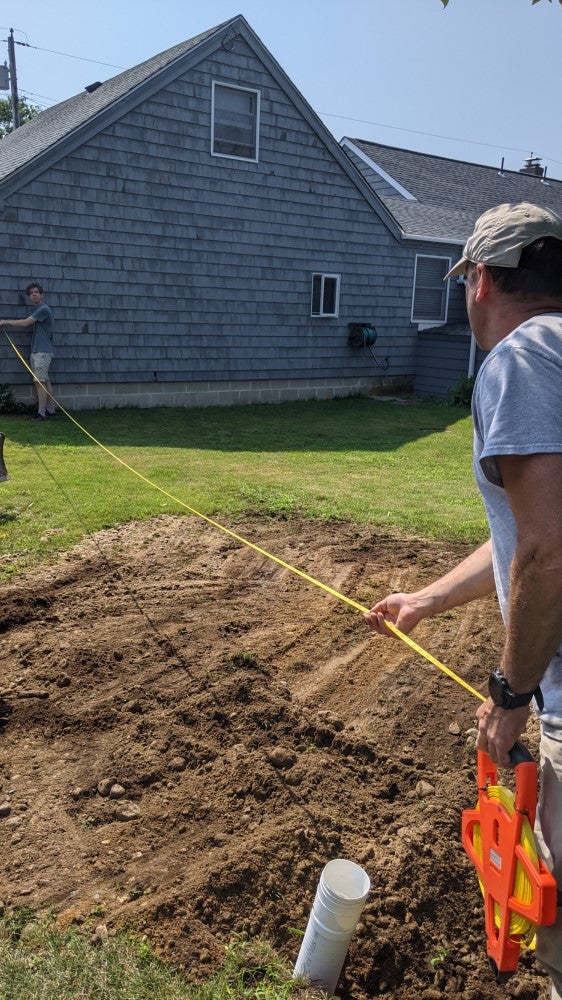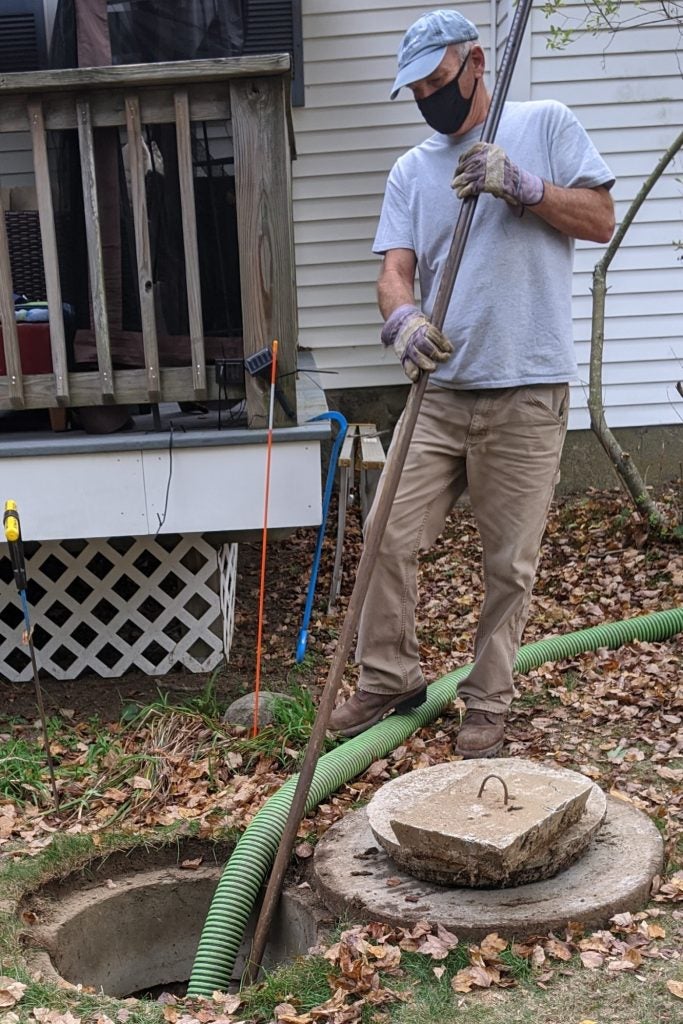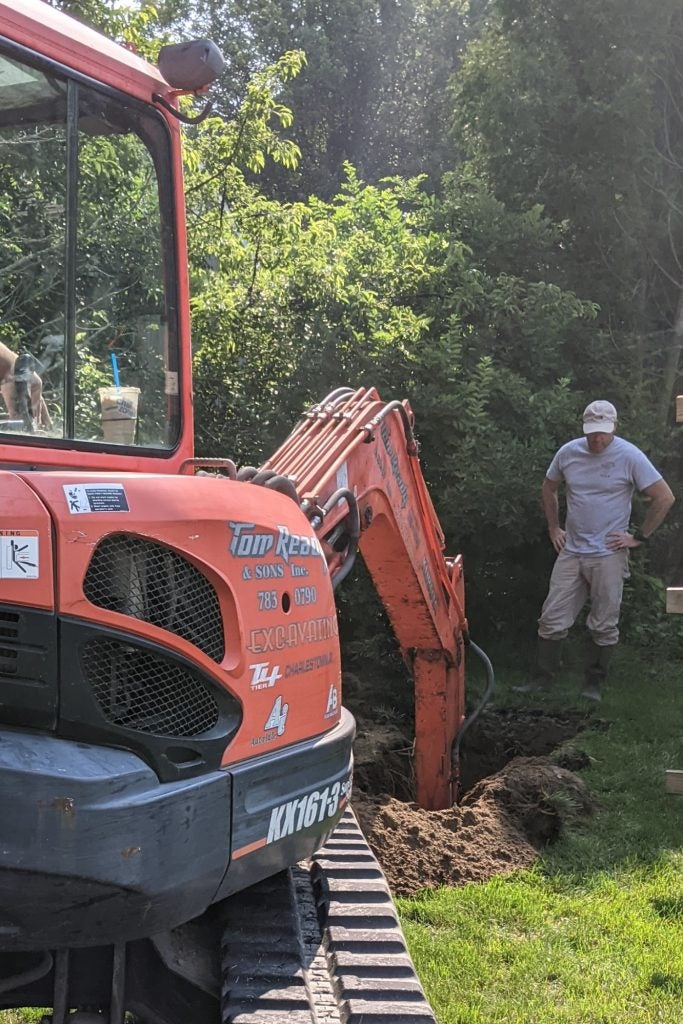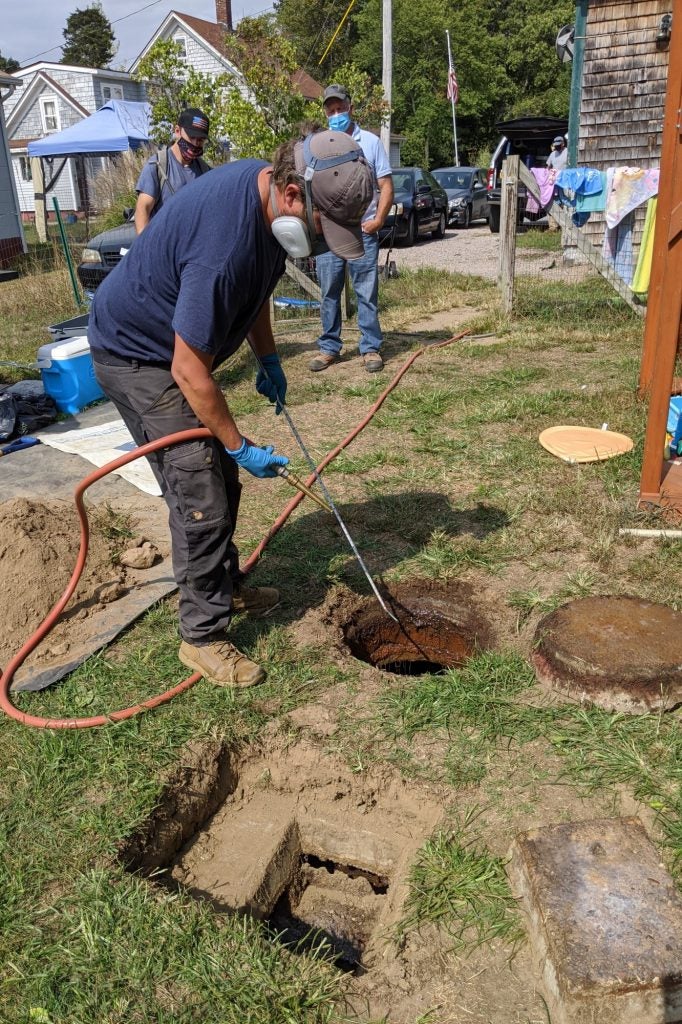As a homeowner with a septic system, you will require the expertise and advice of a wastewater professional or two over the life of your system. You may need to hire someone to inspect your system, pump it to remove solids, or provide routine maintenance (especially if you have an advanced system with pumps and other engineered components). Your system may not be performing as it should, and you may need to learn about your options to repair or replace it. You may be adding to your home or purchasing a new one, and require a new system to safely treat the wastewater generated from it. As in many areas of life, it pays to do your homework and be an informed consumer when you choose the wastewater professional that can help you reach your goal.

Step 1: Do your homework
- Learn the basics about how septic systems work and what kind of maintenance they are likely to require
- Browse our factsheets and other resources for additional information
- Contact your town, county or local board of health and inquire whether there are additional requirements or guidelines for septic systems in your area
- Determine what your needs are:
- Do you need to inspect and/or pump your conventional system? You need an inspector and/or a septic system pumper-transporter.
- Does your advanced system need routine maintenance and/or pumping? You need a operation & maintenance or service provider and perhaps a septic system pumping service. You may already have a service contract in place (a requirement in most southern New England jurisdictions).
- Is there a problem you need assessed and corrected? You need an inspector (conventional system) or a service provider (advanced system), who may make recommendations for additional professionals to address any issues identified.
- Do you need a new system? Do you need to replace a failed or failing system? You need a design professional, and (later) an installation professional. Depending on your needs and the professional’s qualifications, this could be the same person/business or two different people/businesses.
Step 2: Find a Professional that has the Qualifications and Reputation to Meet your Needs
Hiring a professional is often a difficult task. Here are a few suggestions to reduce your risk and help you get the wastewater professional that is best for your job.
- Ask friends, family and neighbors for recommendations for wastewater professionals who have done good work for them in the past. Online listings and reviews may also be helpful to consider.
- Review our lists of Registered System Inspectors and Service Providers who have completed our trainings and passed an examination. Your town, county or local board of health may also have lists of approved professionals in your area.
- Make sure the professional is licensed and insured to perform the septic system-related work you require in your area.


- Discuss the job with, or request bids from, two or more professionals to get a realistic idea of the costs and the timeline for the work. Find out what the costs cover, and what additional costs may be incurred based on the professional’s experience in similar situations.
- Be sure the bids are based on the same scope of work and system components
- Ask how much experience the professional has doing the type of work you require
- Before selecting a professional, ask for references and check the references to see how previous jobs have gone. Did the person do what was promised in a reasonable time frame and were any problems or discrepancies promptly corrected?
Step 3: Ask Questions and Know What to Expect when the Professional Arrives to Complete the Work
Once you have found a professional with the appropriate qualifications, it is good to know what to expect and how you can help make the job run smoothly. A reputable professional will take the time to explain and provide you with relevant information, describe options available to you and justify their recommendations. Remember, you are paying for a service that could potentially have a significant impact on your overall finances, so it is important to feel comfortable in your choice of professional and their advice.
If hiring a system inspector, service provider or a pumping service:
- Find out if they need you to be present during their service visit
- Ask if there are discounts if you locate and uncover the access to the septic tank yourself, or what the charge is for the professional(s) to do so
- Be prepared to answer questions about your home’s occupancy, appliances and water use, and any records or history you have of the system itself or past maintenance or problems
- Ask what kinds of equipment they are likely to need to accommodate as part of their visit and alert them to any constraints that may make it difficult for them to access your system

If hiring a person to design and/or install a repair to your existing system or a new system:

- Find out how much experience the professional and their team has with the system they propose. Ask about the system’s longevity, routine maintenance requirements, its resilience to climate change, and whether there are recurring costs to consider (e.g. electricity to power a system with pumps, blowers etc., service contracts, sampling events, component replacement). Ask about alternative technology options and their life cycle costs so you can make an informed decision
- If you are hiring an installer, there should be a design plan upon which the contractors can study and base their bid. Be sure the contractor is specifying components that are called for in the plan. If a new septic tank is being installed, be sure the contractor warrants that it is watertight
- The design and/or installation procedure should be spelled out in the contract and the costs and payment schedule should be clearly defined. The bid procedure should include a list of components, as well as any proposed finish landscaping or property restoration the contractor will provide
- Ask about how your property will look before, during and after the work is completed. Discuss any aesthetic priorities and concerns you have for your property, and how the system may affect or constrain the ways you and your family can use the property
- If the system is an advanced treatment system, has the contractor designed or installed this type of system before? If not, does he/she have a resource to help him/her through the design or installation such as the product supplier or manufacturer? Most product suppliers have technical staff to help with installations. There may be a fee for this service, and it should be understood ahead of time who is responsible for that fee.
- The conditions for any contract cost adjustments should be clear before the contract is signed. It is important for the contractor to outline and write into the contract situations where an unplanned increase in the price of the system would occur before the contract is signed.
- Unexpected site conditions such as the need to blast or hammer ledge where none was indicated before excavation could constitute a problem that warrants additional cost.
- Another potential for additional costs is the need to retrofit plumbing inside the house or to re-direct the building sewer. Be sure the responsibility for these costs are spelled out in the contract.
